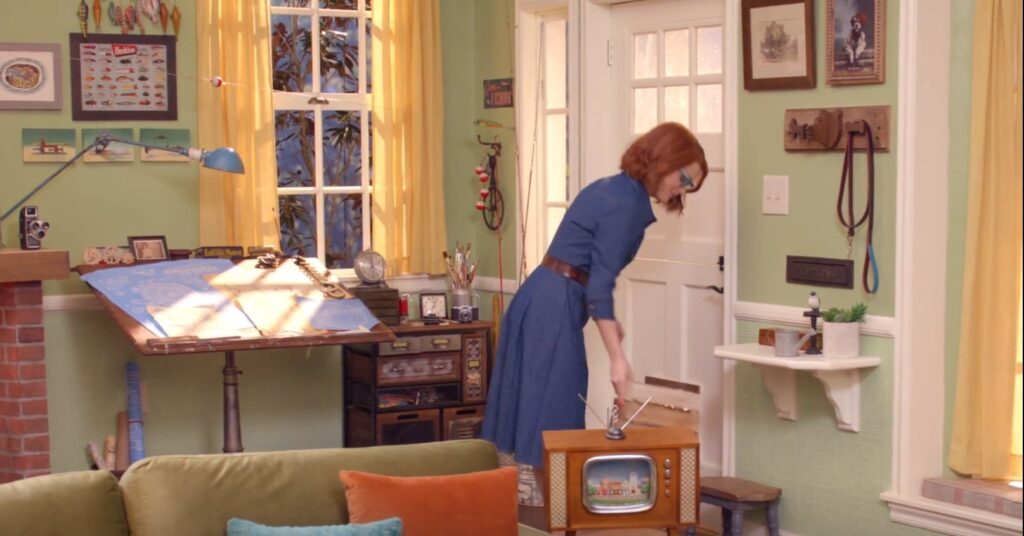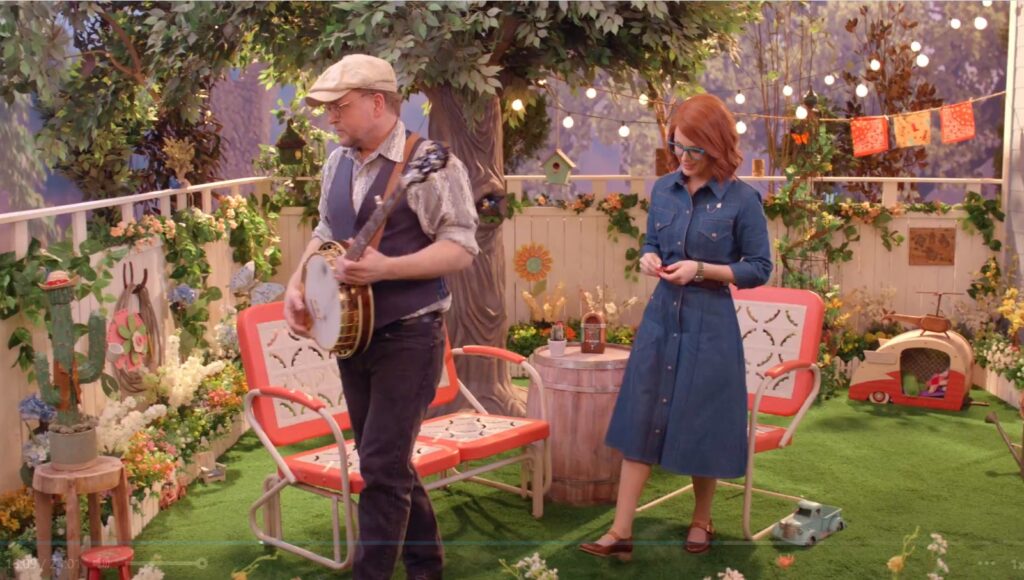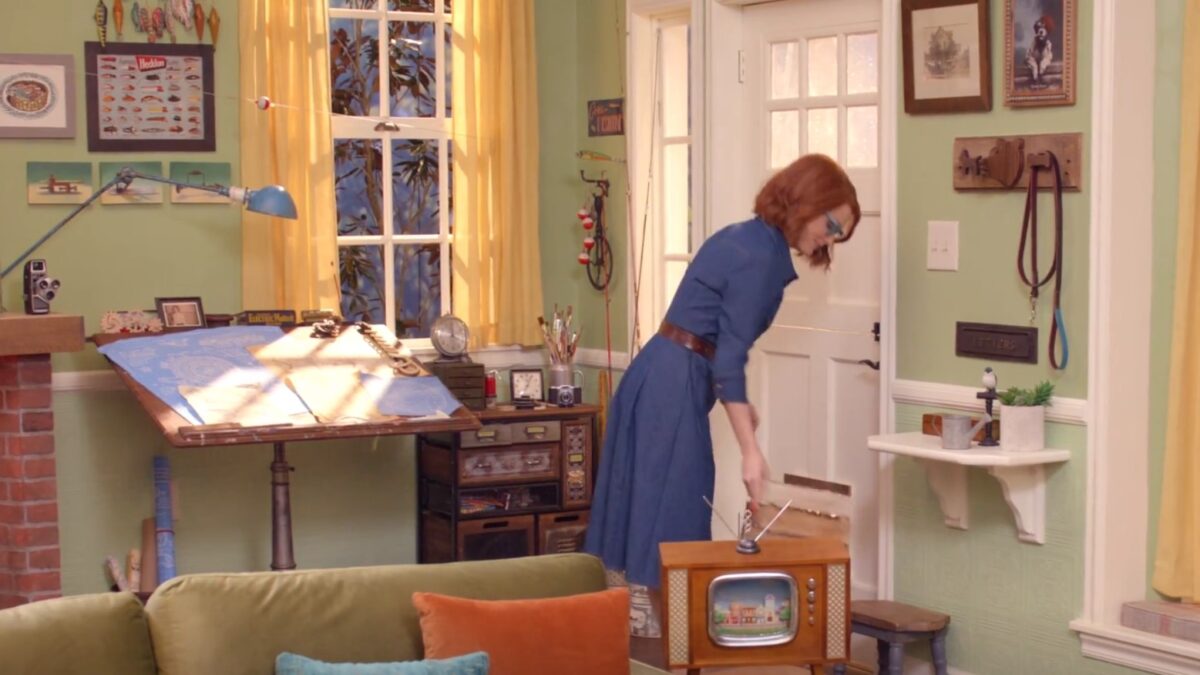My family is not the perfect focus group for a children’s streaming service because my six children watch a maximum of two hours per week (except if they are miserably ill). Ages 3 to 13, our children are nearly screen-free and will be for several more years. They have zero access to any screen independently and have permission to get a dumbphone when they are a) driving and b) paying for it.
To us, and for people as different as YouTube comedian J.P. Sears and liberal academic Jonathan Haidt, that seems like the baseline for decent parenting. My husband and I regret all the hours we spent as kids playing the DOS version of “Oregon Trail” and watching cartoons instead of doing literally anything else. We concede their Monday movie night because the kids are aware everyone else watches stuff.
They also listen to audiobooks every once in a while, especially on long car rides, usually on CD, but sometimes on my tablet or a parent’s phone run through the car. And friends host a once-monthly movie musical night I send our kids over to sometimes to get them out of my hair.
They pretty much don’t grumble about this arrangement. When less-trained younger kids whine for more screen time, they get less of it. (See Jordan Peterson’s Rule 5.)
So on several subsequent Mondays, our children have been trialing The Daily Wire’s new kids streaming app, Bentkey, even though there’s no way in Hades we’d ever try its competitor, Disney Plus. I’ve also sampled a few Bentkey shows during my podcast time, which is usually amid laundry folding and kitchen work. I was suspicious, like I am of all strangers who desire to show my children fun little secrets. Well, they’ve won me over.
Turns out the kids are a bit pickier than I am. The younger ones will watch anything, but especially my 13- and 12-year-old expressed a desire for bigger-kid options on this streamer. I haven’t suggested the youth HIIT workouts to my 13-year-old son yet, but I will next time I remember as he starts figuratively shooting sillies out of his arms and eyeballs. That semi-hourly occurrence usually results in him being told to take out the garbage or amuse his rapacious three-year-old brother. But it’s never too early to add exercise to one’s energy management repertoire.
In fact, I was a bit surprised to see the offerings seem tailored to a countercultural family like ours. They include the nature show “Walking Wild” (one of the DVD sets we bring out around holidays is “Planet Earth”); multiple well-paced young children’s shows, with a variety of characters and visual styles; an upper-elementary history show called “Kid Explorer”; and the delightful “Mister Rogers’ Neighborhood” revamp “It’s a Wonderful Day with Mabel Maclay,” one of four current shows original to Bentkey.
All of these are already in the vein of the sorts of things our kids watch, the occasional times they do watch things. We go for classics (like Gene Autry and “The Andy Griffith Show”), quality storytelling, useful arts, no advocacy for moral evils, interesting questions raised, and just plain fun.
Lovely Pacing, Quality Artistry
The loathsome lefty website Media Matters went after The Daily Wire for bringing several European cartoons to an American audience, but I enjoyed these especially. They have lovely pacing, less likely to induce anxiety and frenzy in children, and quality visuals. “Ernest and Celestine,” for example, brings to video a French children’s book series from the 1980s. It’s the precious story of a bear and mouse who live together and love music and drawing.
The line-drawn animation and folk and classical music styles inhabiting the series are a clear cut above American cartoons’ usual trash visuals and pop music that deform young children’s developing artistic tastes. Ernest adopted Celestine — after finding her in the garbage! — and it is delightful to see a quality father figure at the center of a children’s story.
The BBC early childhood show “Clangers” grew on me. At first, the concept seemed very weird for preschoolers: little half-claymation elephant-like creatures who live in space and whistle instead of speak. But very soon, I found them endearing, and the grandfather-like British narrator well fitted to young children’s development. He acts like adults should: explaining the world in clear words and simple terms.
That’s called “mediation,” and small children especially need it. These fresh creatures are being introduced to all the ideas in the world one at a time, and that should be done with joy, gentleness, and curiosity.
That’s something “Mabel Maclay” does beautifully as well, without ever talking down to children. In a very different way than both “Clangers” and “Ernest and Celestine,” “Mabel Maclay” also has exquisite visuals.


Multiple reviewers noticed this show created for Bentkey is basically “Mister Rogers’ Neighborhood” with a female lead and fresh set. I love that, too, because I keep “Mister Rogers” DVDs for when I or my preschoolers are sick,* or for an emergency TV hit when I can’t conjure a babysitter on six hours’ notice (although, as Ben Shapiro may have noticed in one of our hits, the TVsitter doesn’t always keep my toddler at bay).
PBS Kids Without Queering Toddlers
Indeed, a lot of the Bentkey offerings seem mostly to present what PBS Kids used to be like when I was young watching cartoons at grandma’s house, except without all of today’s gay characters and transgender ideation. If you’ve been living under a rock, everything from “Arthur” to “Sesame Street” introduces gay romance to preschoolers now, and of course, Disney execs were recently outed on company streams talking about their desire to “queer” all of their kids programming.
I don’t think that’s appropriate because the only thing different about gay people is what they do in the bedroom, and bedroom behavior is not appropriate to explain to preschoolers. Sex is sacred, and it’s for adults. Explaining it is for puberty.
None of that is going on in these shows, which beat PBS in more child-appropriate pacing, a longstanding problem with “Sesame Street.” Even the frenetic “Sesame Street” is more effective at building kids’ language development than government-run preschool, and most Bentkey shows seem to be well-arranged in that direction for little ones. Mabel and the Clangers narrator speak slowly, clearly, and keep coming back to the same topic.
The worst show in that regard on the platform might be “Truck Games,” five-minute shorts very attractive to lil’ guys who love big trucks. Big trucks are about all the show seems to offer besides another strong central male character in the grandfather truck.
Another benefit of several Bentkey offerings is that the people influencing your kids through these programs are not all God-hating serial adulterers. The host of the puppet-focused Bentkey show “Gus and Us,” Christina Caster, told a Dallas-area publication she homeschools her kids and enjoys books by the Christian writer Sally Clarkson. Caster has also spent time entertaining U.S. troops stationed abroad.
Katy Chase, who plays Mabel Maclay, works with her husband, Ryan, on the show. Like the stars of the animated Bentkey show “Chip Chilla,” they also homeschool, are faith-driven, and strictly limit their kids’ screen time.
“We’ll turn off a show in the limited amount of time our kids have seen modern kids’ content, and they truly have flushed cheeks, dilated eyes, and crazy behavior; they don’t want to turn it off,” Katy Chase told the Christian Post recently. “They’ve obviously been so hyperstimulated by the content. But when we show them older things, the ways shows used to feel, they don’t have that reaction. We thought, let’s make a modern take on that stuff; it’s so good.”
Yes to Culture Competition, But It Needs Work
The company told Axios it plans to put $100 million into Bentkey in the next three years. Currently, the No. 1 downloaded kids app on Apple the day of its release puts out new episodes every Saturday. It comes with a Daily Wire Plus subscription or, separately, $99 a year.
Since people are not primarily rational but imaginative beings, The Daily Wire’s serious investment in cultural content is not only prudent but necessary. Human beings’ instincts are pre-political, and engaging right brains is a non-negotiable tool of pre-suasion towards a saner culture.
It’s unfortunate this bold project bears a poor name. Any English major, including yours truly, can immediately grasp the symbolism of a “bent key,” and there’s nothing positive about that image, especially for an app aimed at children. Only creepers want crooked locks opening crooked doors for children’s eyes. Nothing related to children should be “bent,” and there’s not really any way to positively spin that avoidably negative imagery.
It’s even worse, symbolically, to learn “Bentkey” is named after a literal bent key that hides inside the shirt of a man who is a stranger to all the kids watching, The Daily Wire cofounder Jeremy Boreing, as the company noted in a press release. With all the creatives this company employs, it’s a bit striking a significant PR problem embedded in the new project’s very name was never fixed pre-release.
All that said, The Daily Wire has 1 million subscribers already, and those subscribers’ kids and grandkids are a formerly untapped audience. People on the right are terrible at reliably passing down their values to their own children, and education and entertainment are a big part of that problem. It’s a small relief to have clean content to hand my kids during their screen time, but a much bigger relief to see competition among the content available to the majority of kids whose parents allow their minds to be formed by strangers on screens.
*I don’t watch “Mister Rogers” when I’m sick, but if I can’t get out of bed, my preschoolers do because we don’t have nearby family or regular childcare.









